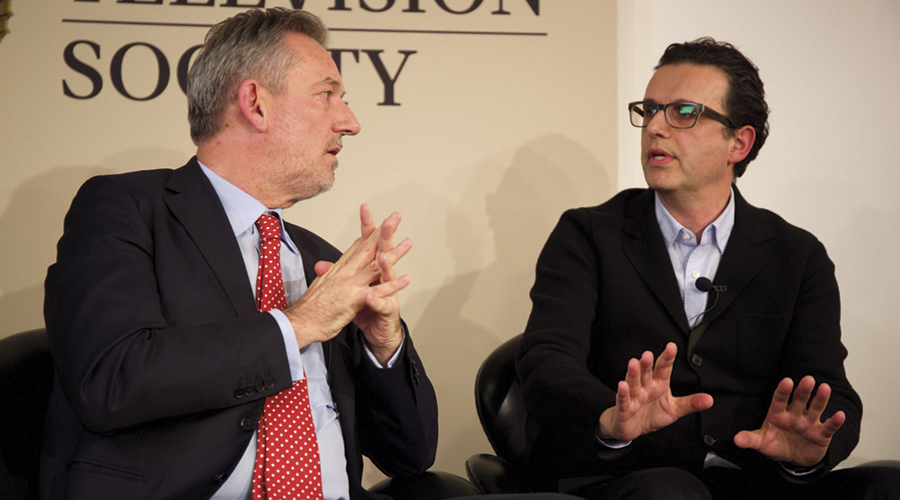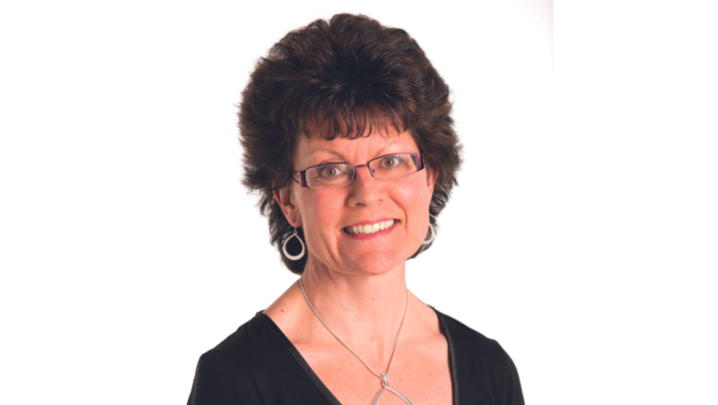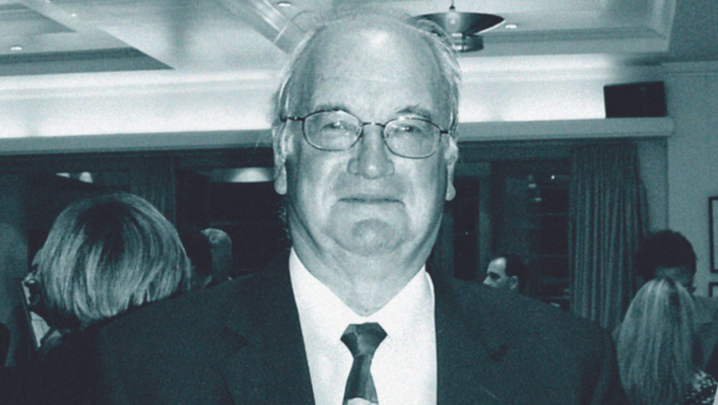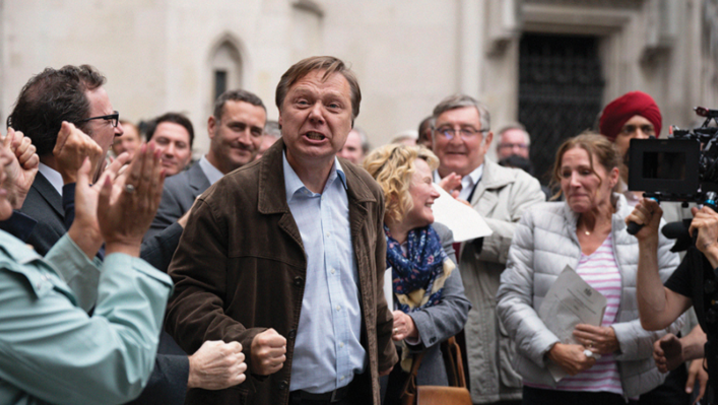David Abraham and Tom Mockridge debate whether public service channels are subsidising pay-TV platforms. Tara Conlan keeps score
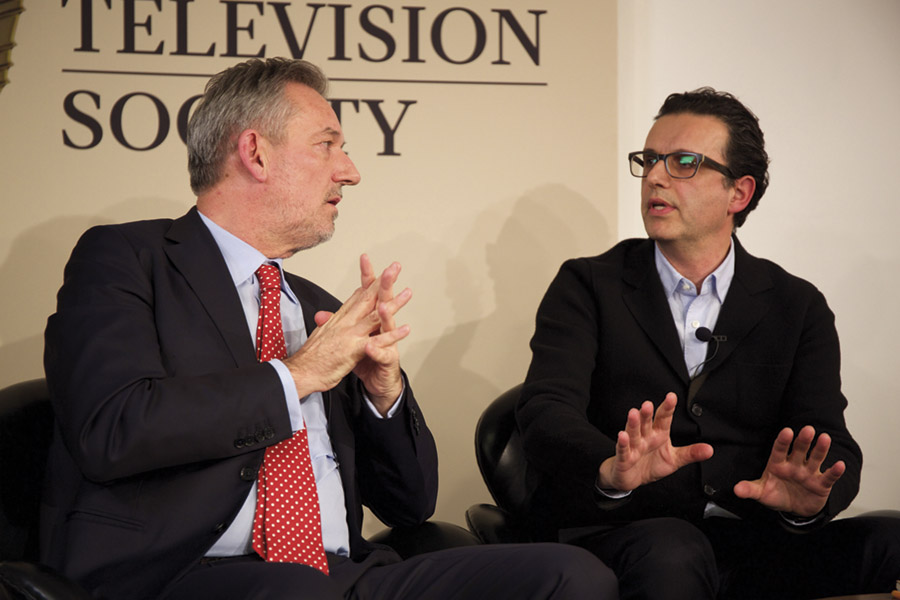 Tom Mockridge (left) and David Abraham (Credit: Paul Hampartsoumian)
Tom Mockridge (left) and David Abraham (Credit: Paul Hampartsoumian)
The fault line that has opened up between commercial public service broadcasters and pay-TV platforms over their value to each other was laid bare in a lively RTS debate between Channel 4 Chief Executive David Abraham and Virgin Media CEO Tom Mockridge.
What began as a discussion about the uniqueness of UK television (see below) moved swiftly into a heated exchange.
Building on the case he made in his MacTaggart Lecture in August about retransmission fees – he argued that pay-TV operators should pay to transmit the five main PSB channels – Abraham said that a new study confirmed that the value of public service channels to pay-TV platforms was around £200m.
He explained that the recent Mediatique study, on behalf of Channel 4, asked 2,000 pay-TV consumers what they would do if they were denied access to PSBs on pay-platforms such as Sky or Virgin.
Abraham said that it was possible to "work out what the exchange of consumer behaviour would be between the platforms. Conversely, we also rely on distribution to the pay-platforms for advertising revenue.
"There is a gap between those two numbers and that gap is in the region of £200m for all the commercial PSBs."
He argued that, together, the commercial PSBs offer "huge value to pay-platforms" and that the £200m should be shared among them, with Channel 4 receiving around £70m, which would go "back into the UK independent production sector".
Abraham said one of his main concerns was the "fair value" of Channel 4 and the other commercial PSBs.
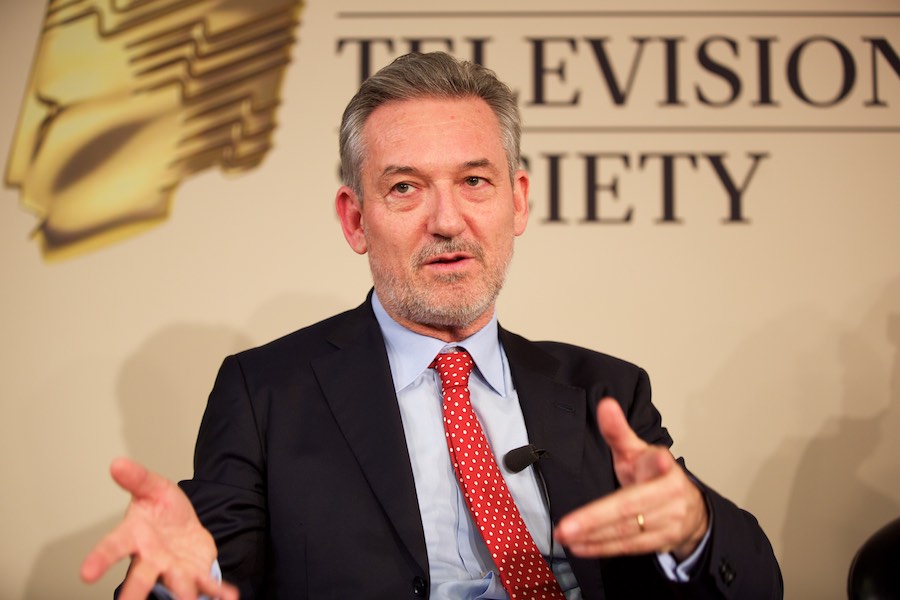 Virgin Media CEO Tom Mockridge (Credit: Paul Hampartsoumian)
Virgin Media CEO Tom Mockridge (Credit: Paul Hampartsoumian)
He added that "what we are saying is that we should negotiate" over what constitutes fair exchange of value between commercial PSBs' services and the distribution provided by pay-TV platforms, but also that "we should have a regulatory backstop".
There then followed a hammer-and-tongs exchange of views on the issue.
Mockridge denied any suggestion that Virgin's business had been built on the PSBs: "The big driver for demand for Virgin Media is broadband."
Abraham countered that changes were needed, to ascribe "fair value" to the contribution PSB content made to pay-TV suppliers: "The system is broken... The point is that you have this fantastic business... [I'm] just saying it's absurd to now behave as if the absence of [PSB channels] would not drive big changes in consumer behaviour."
Mockridge suggested that "a regulated backstop by Ofcom... [is] in the language of ordinary people, the customers that we serve, called a tax" and would have to be passed on to consumers in their bills rather than taken out of margins.
He said that the subsidised spectrum that Channel 4 received had huge value and the industry should beware of changing the current broadcasting ecosystem in exchange for "a reasonably modest sum of money to Channel 4".
Mockridge also warned: "When you saw how quickly some politicians leapt on the BBC [in late November], opening up this debate at this time [as we approach] the licence-fee negotiations... is, frankly, reckless for those people who want to see a strong BBC in future."
Abraham dismissed the Virgin CEO's concerns about the vulnerability of the BBC as nothing more than a red herring: "It's irrelevant to talk to us about the BBC, it's a big diversion from the central issue we are raising."
Mockridge argued that, if regulators were to look at what "broadband delivers to the creative industries", then they would come to a different conclusion to the one the commercial PSBs were looking for.
Once the debate was opened up to the audience, Sky's Director of Policy and Public Affairs, David Wheeldon, took issue with an earlier assertion of Abraham, that the PSBs' prominent place on Sky's EPG was not up for negotiation or "in the gift of any pay provider".
Wheeldon said Channel 4's EPG position helped it "to sell a lot of advertising" and disagreed that the EPG was "a public good... It's not, it is a private good appropriated," and part of Sky's "contribution to public service".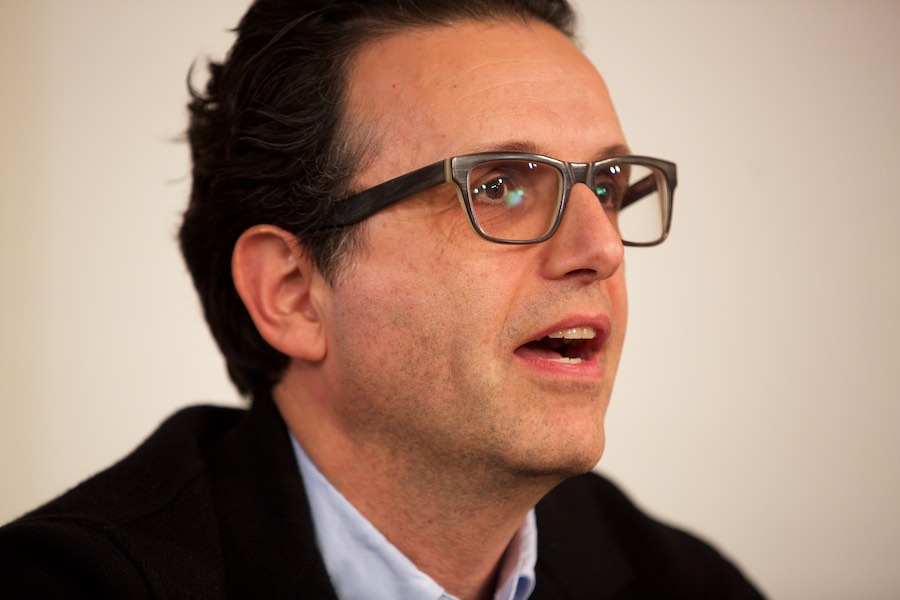 Channel 4 Chief Exacutive David Abraham (Credit: Paul Hampartsoumian)
Channel 4 Chief Exacutive David Abraham (Credit: Paul Hampartsoumian)
He went on: "The idea that you can somehow exclude that from the argument won't wash." EPG prominence was part of the balance of payments between pay- and public service TV.
"We've got to be careful about what we wish for," warned Wheeldon. His view was echoed by Mockridge, who said that, for commercial PSBs to "pluck one piece" out of the jigsaw of UK broadcasting and ask for it to be changed, risked "undermining" the whole system and walking into a "trap".
Mockridge was questioned about Virgin Media lobbying Ofcom to investigate the spiralling cost of Premier League broadcasting rights – and the impact on prices for consumers. He confirmed Virgin's current position of not commissioning content directly, and elaborated that it was not going to bid for the football rights in the forthcoming auction.
Mockridge warned that the cost of the rights could double, a prediction that – unusually, for the evening – no one seemed to disagree with.
The RTS early-evening event 'UK television's USP: just how unique are we?' was held at The Hospital Club in London on 8 December. It was chaired by Kate Bulkley and produced by David Mahoney.
UK TV's USP
Channel 4 CEO David Abraham opened proceedings by suggesting that the continuing arguments about his James MacTaggart Memorial Lecture showed he had stimulated debate about a key issue.
In that lecture to the Edinburgh International Television Festival in August, he warned that, with 'US entities queuing up to buy our producers and now our broadcasters', if politicians and regulators stayed silent, the UK's 'special system may wither'.
Abraham told the RTS audience that 'the US television market is vast', with around 95 million homes, and much of what we see in the UK, when 'we talk about great US TV, is the icing on the cake'.
He claimed that what made the UK unique was 'decades of really enlightened frameworks' and a balance between 'enlightened regulation' and a strong market; these have combined to produce 'great creativity'.
The Channel 4 chief warned that, in a time of consolidation, where large US groups are buying British media companies, the UK television industry 'can't take [the regulatory system] for granted'.
Abraham explained that his MacTaggart speech 'was concerned with balance'. He delivered it just after 'the first PSB licence' (Channel 5's) had gone to a US company, Viacom, and when news had emerged that Liberty Global (owner of Virgin Media) could be interested in ITV.
Abraham said that in the US he had observed 'quite a high level of regulatory activity', even in areas such as foreign ownership. So to describe the US marketplace as 'somewhere without any market intervention' was 'frankly absurd'.
Abraham revealed that his views about the threat to the UK broadcasting ecosystem had 'hardened' since his MacTaggart speech. British television, he said, was an important part of UK culture and a contributor to the UK tax economy, plus 'there's something that is about preserving the culture, about us speaking to ourselves'.

